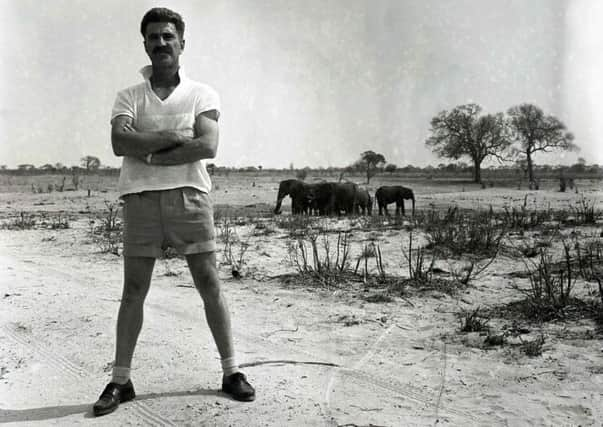Archive to honour Scot who fought for black liberation


But little is known in his home country about Peter Mackay’s role in the long struggle for black freedom, particularly in what would become Zimbabwe and Malawi.
Now, three years after his death at the age of 87, that is set to change under a new campaign to give him proper recognition to his work for African independence.
Advertisement
Hide AdStirling University has unveiled plans to create a vast online archive dedicated to Mackay after his family, from Doune, donated his personal papers and photographs. As well as political activism, they cover his involvement in journalism and charity work, as well as his travels around Africa.
More than 30 crates, trunks and filing cabinets have been shipped to the university, where experts believe they have inherited “one of the most important collections of this type in the world”.
An international fundraising campaign is underway to help pay for the painstaking process of restoring, cataloguing and digitising records and documents covering a quarter of a century.
The university believes the Mackay archive will be an “invaluable” record of the struggle for freedom in Africa. It is hoped a major photographic exhibition will also be staged in his honour.
Born in 1926, Mackay joined the Scots Guards after leaving school and was the youngest ever Brigade of Guards captain by the age of 21.
After emigrating in 1948, he worked as a trainee tobacco grower and developed an interest in politics after joining the Capricorn Society, a multi-racial pressure group set up a fellow Scot and former British Army officer, David Stirling.
Advertisement
Hide AdHe devoted himself to the cause of African liberation and worked with nationalist leaders like Yatuta Chisiza in Nyasaland (Malawi) and James Chikerema and George Nyandoro in Rhodesia (Zimbabwe). He later took up the cause of the impoverished people of Omay on the shores of Lake Kariba.
Karl Magee, the university’s head archivist, said: “The Peter Mackay archive is of international importance and provides a comprehensive record of a remarkable life and the role one Scot played in the independence movement across Southern Africa from the 1950s.
Advertisement
Hide Ad“Mackay played a crucial role, but his stories have not yet been fully told.
“We want to make his personal and political papers, and photography, accessible to scholars and students in Africa and open up one of the most important collections of its kind to the rest of the world.”